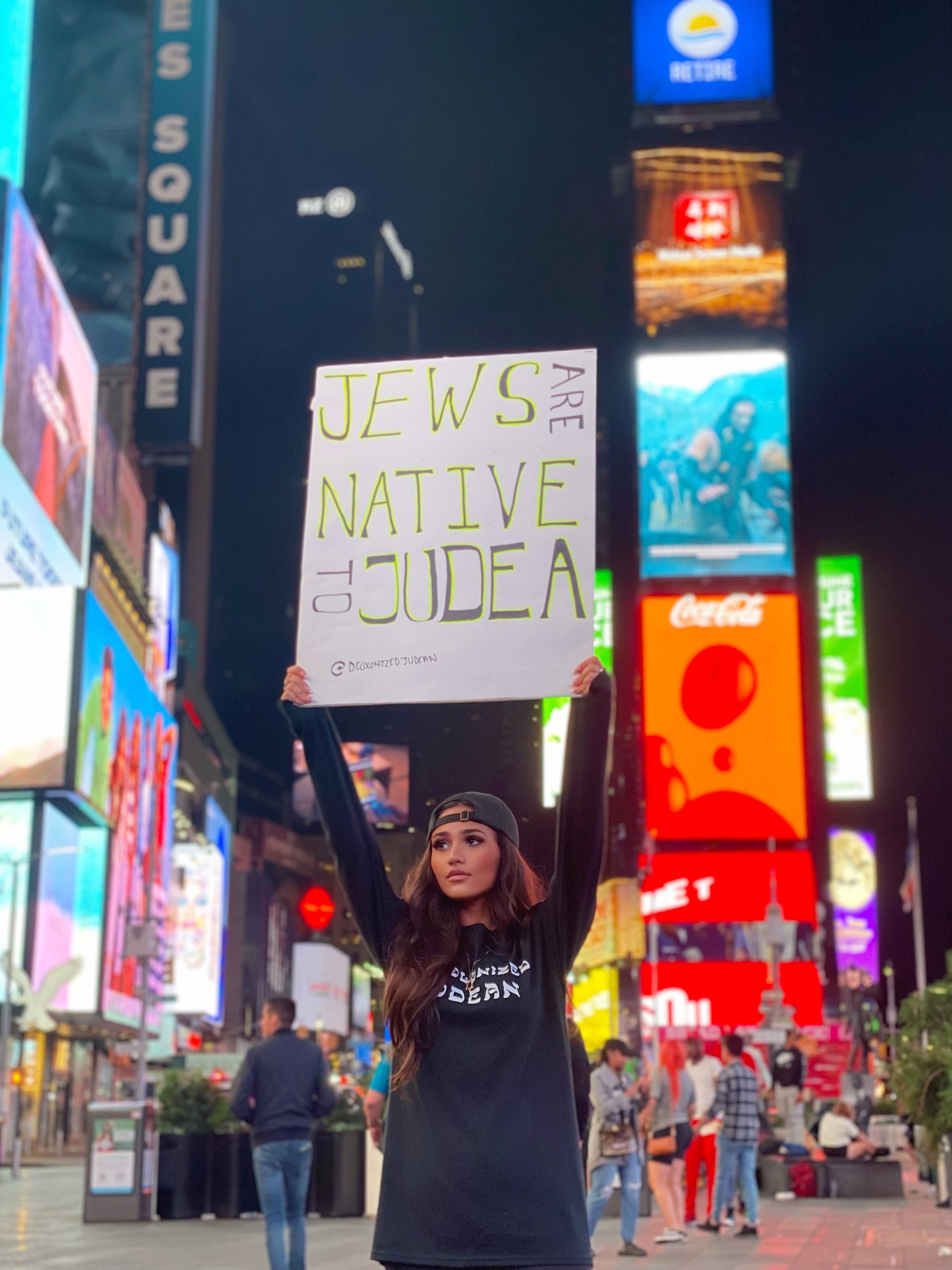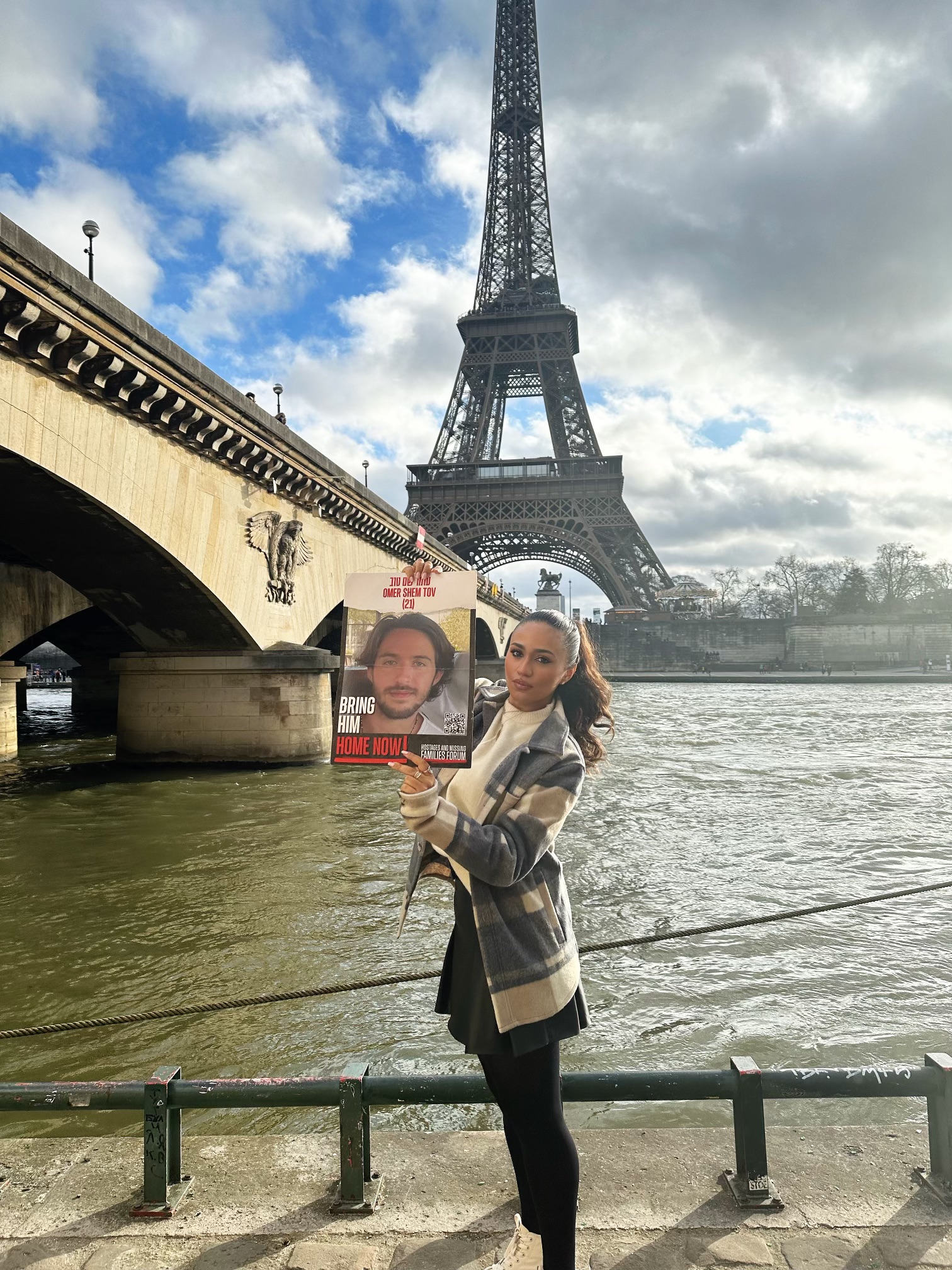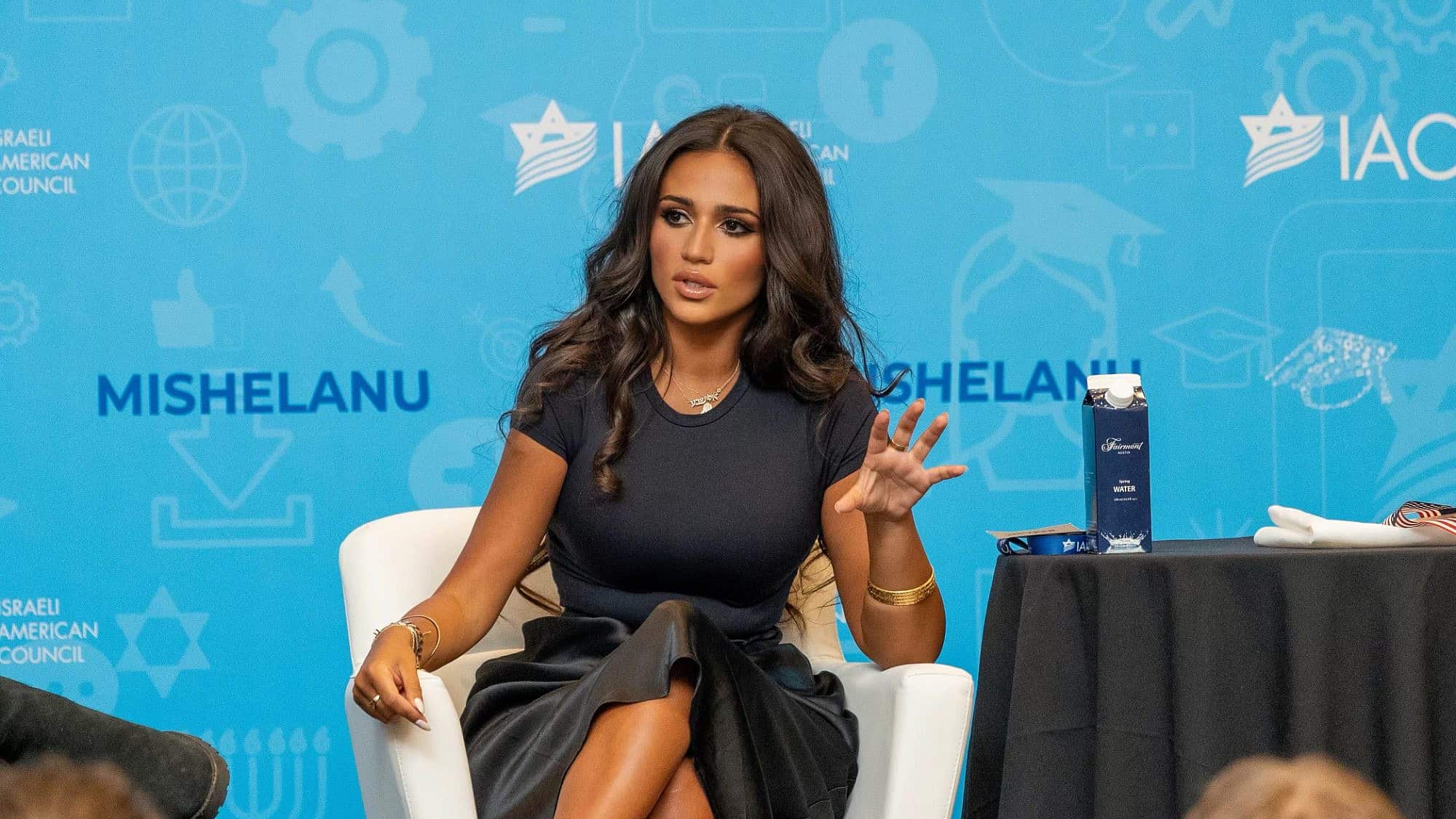As a young girl growing up in Montreal, Ysabella Hazan connected to the Chanukah story of the Maccabees and the Jewish Temple. “I always felt like it was a part of me,” she told JNS.
Hazan is something of a present-day Hasmonean underdog taking on a plethora of anti-Israel foes on social media as vast as the Seleucid Empire.
The former associate director of Honest Reporting Canada, who earned a J.D. last April at the University of Ottawa, has a combined following of 85,000 accounts across Instagram, X and TikTok. But she does just as much talking in real life as she does on social media.
The 23-year-old told JNS that she has delivered speeches and served as a panelist and moderator “several hundred times” in the past four years, including at Harvard University and other U.S. and Canadian schools, at the Canadian Parliament and outside the White House, Knesset and the Israeli president’s home.
She has worked with the Canadian Jewish Political Affairs Committee, Hillel, the Israeli humanitarian organization Save a Child’s Heart and the Jewish National Fund, and in 2020, she was a political and public affairs strategist at the Consulate General of Israel in Montreal.
A digital marketing firm ranked her as No. 40 and a “rising star” on its list of the top 50 pro-Israel influencers worldwide in 2021.
In her advocacy for Israel and Jews, Hazan believes that a holistic approach must be about more than just Jew-hatred in the past.
“Holocaust education is critical and more important than ever,” she told JNS. “However, there’s a misconception in the Jewish community that Holocaust education combats present-day Jew-hatred. Educate on the Holocaust and educate on Jewish identity in order to effectively combat Jew-hatred.”

Fire to fight
Hazan was the first speaker at a pro-Israel rally in Ottawa on Dec. 4, for which some 20,000 braved freezing temperatures.
“I really wanted to get the message out that we are not foreign to the land of Israel, and we are not going to be scared. We will not be scared or terrorized into silence,” she told JNS. “We believe in peace and justice—not just peace.”
Immediately after the rally, Hazan flew to Israel, where she visited towns devastated on Oct. 7 by Hamas’s terror attacks. She interviewed families of several hostages and volunteered on Israeli army bases near the border with Gaza.
“You could still hear the tanks and the bombings,” she told JNS of the “intense experience spending time with recovering soldiers.
“You see soldiers who are no longer with their units, but they had this fire in them to fight for the people of Israel,” she said.
One soldier, Alan, told her that a Palestinian terrorist shot at him from a U.N. Relief and Works Agency building. (The United Nations and UNRWA have said that they do not support terrorists, although Israel has said it has evidence that 12 UNRWA employees participated directly in the Oct. 7 attack and some 10% of UNRWA’s staff reportedly supports Palestinian terror groups.)
“You’d be surprised how many soldiers go into Gaza and don’t see terrorists, because they are hiding the whole time,” Hazan told JNS. “It really enriched my knowledge, because I was actually speaking to soldiers who were there, on the ground.”
She also met a soldier who was some 275 yards from the accidental shooting, in which Israeli soldiers killed three hostages whom they mistook for terrorists.
“It’s like you are crying in pain, but you are also crying with resilience at the same time,” she added, of her conversation with the mother of a captive who is still held in Gaza. “A really powerful moment.”
Passionate enemies

While many are motivated to counter Jew-hatred after experiencing antisemitism, Hazan told JNS that she came to be a pro-Israel activist out of “just love for the Jewish people.”
In high school, she ran weekly community service programs in her synagogue, Chabad of the Town in Montreal, including raising funds for the Israel Defense Forces. She also helped bring Holocaust survivors to speak at Chabad.
She has drawn some conclusions about what works—and what doesn’t—in Jewish education based on that experience and others since it. She thinks that it’s “superficial” to teach that Israel solely represents a safe haven for the Jewish people.
“Even if Israel wasn’t safe, that’s not why we have Israel,” she said. “We are connected to the land. We pray toward Jerusalem.”
“Obviously, we have very passionate enemies, but I don’t want us to get lost in that,” she added. “That goes back to being able to act out of love and not out of reaction.”
‘We have a lot of un-programming to do’
She is also an advocate for non-Jewish causes and people. Hazan was part of a planning committee that organized a vigil for Muslims to honor the victims of the 2019 mass shooting at two mosques in Christchurch, New Zealand that killed 51 and injured many others.
She also spoke on behalf of the Uygur Muslims outside the Chinese consulate in Montreal.
In 2021, she coined the phrase “decolonized Judean,” which took off online and in t-shirt sales.
“‘Decolonizing’ is a word now that is hyped. We have a lot of un-programming to do when it comes to how we view ourselves, and our place in society, how we view our own culture and God,” Hazan told JNS.
“Decolonizing Jewish identity doesn’t mean forgetting our Diaspora experiences around the world,” she said. “It means taking all that we have contributed” and “staying connected to the practices and worldview of our ancestors.”


























